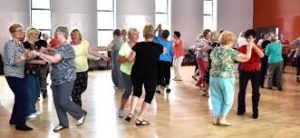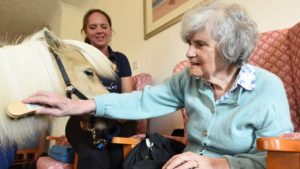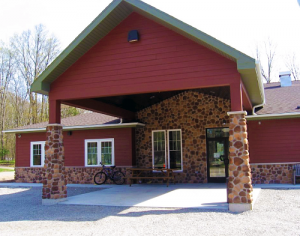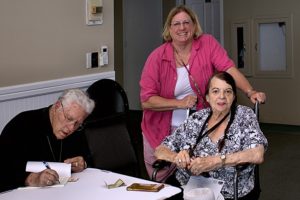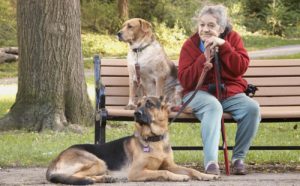
Clearwater at Riverpark invites local community to honor Active Aging Week with Wellness Festival
Clearwater at Riverpark is hosting a community event on Saturday, September 29th from 11 to 3 pm to advocate for Active Aging Week. Festivities will embody Clearwater at Riverpark’s Empowered Living philosophy that encourages residents to pursue their passions through a wellness lifestyle.
Active Aging Week influences millions of people every year during the last week of September to spread awareness for the International Council on Active Aging® (ICAA). Highlighting the benefits of active living in adults over 50 years old; this weeklong campaign puts a spotlight on all areas of life —physical, social, spiritual, emotional, intellectual, vocational and environmental. Individuals worldwide participate in various ways to experience wellness activities for older adults while creating a supportive environment.
“The Wellness Festival is intended to inspire our residents and the greater community.” said Britt Martin, lifestyle director of Clearwater at Riverpark. “I’m excited about Active Aging Week. There are many ways to live a healthy, vibrant lifestyle and offering a community wellness festival where the older active adults can explore on their own, puts the power in their hands to choose what is best for them.”
The event is open to the public and there is no charge to attend. Guests will appreciate the beneficial and healthful choices at Clearwater at Riverpark’s Wellness Festival, such as:
- A mindful market of local, homemade, and wellness focused product
- Community vendors
- Dogs to adopt from C.A.R.L. organization
- Healthy food trucks
- Wellness speakers
- Giveaways
In addition, throughout the week residents of Clearwater at Riverpark can engage in on-site activities aligned with Active Aging Week by dedicating each day to a dimension of wellness from their Empowered Living program. The exclusive schedule offers a beach clean-up, meditation journey nutritional class, tai chi session and more.
Space is limited. To reserve your space or learn more, please call 805.366.3446 or email [email protected] Clearwater at Riverpark is located at 750 Clyde River Place in Oxnard.
Clearwater Living® is committed to providing the most superior customer service and living experiences that celebrates individual relevance, from our residents and their families to our family of associates. Clearwater is growing through strategic acquisitions, development and operational management of senior living communities throughout the western United States. Every Clearwater Living community includes cutting-edge technologies and care practices that improve the daily lives of residents. To learn more about Clearwater Living, visit ClearwaterLiving.com.
Also Baby’s Badass Burgers Food truck will be there on September 14th and October 12th from 11:30am-2:30pm.
